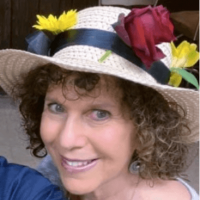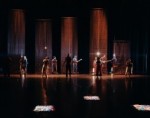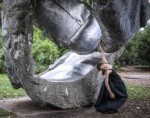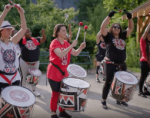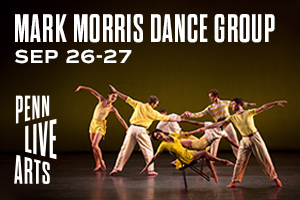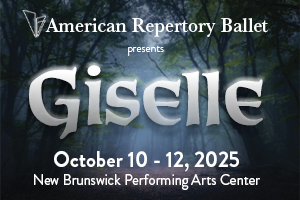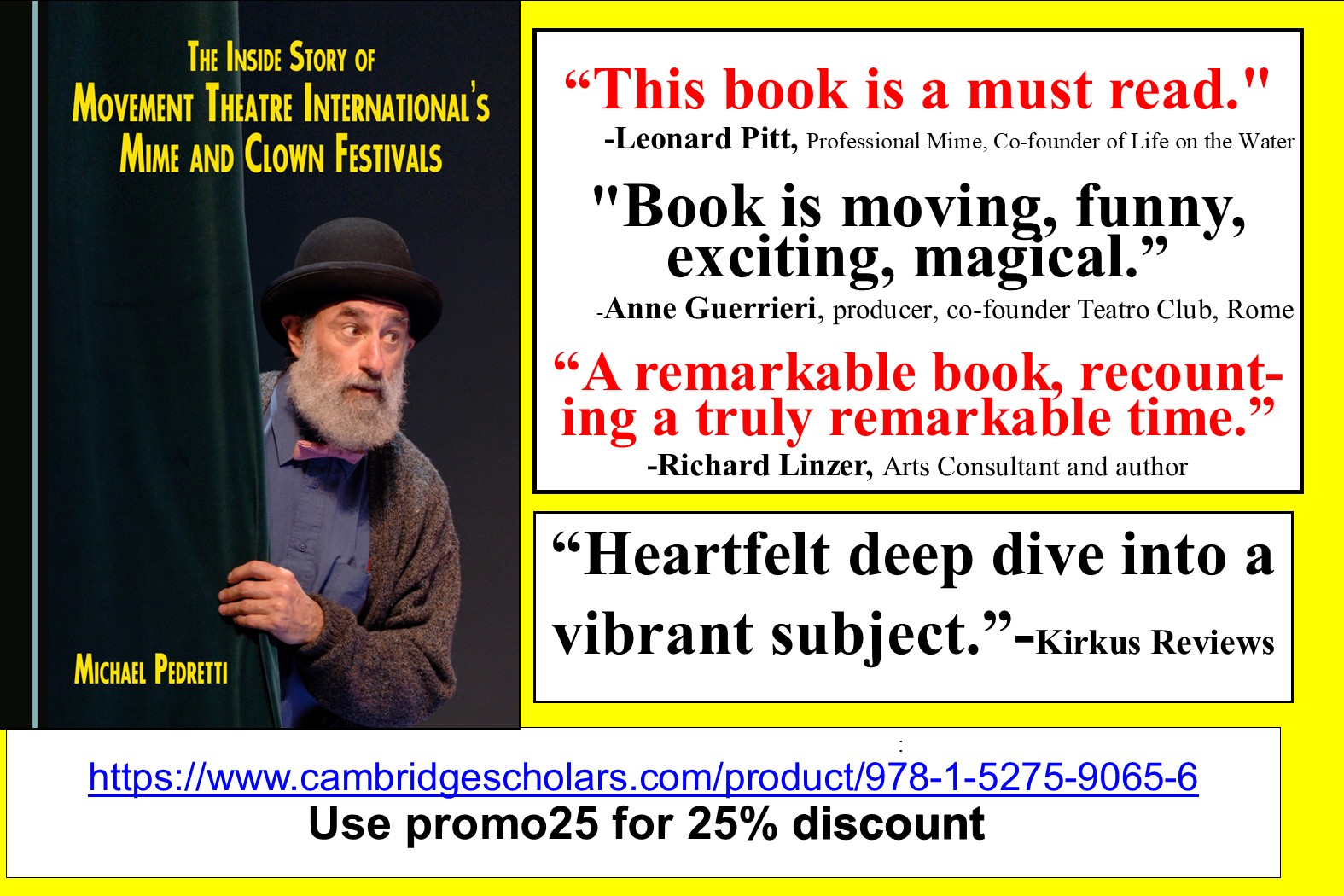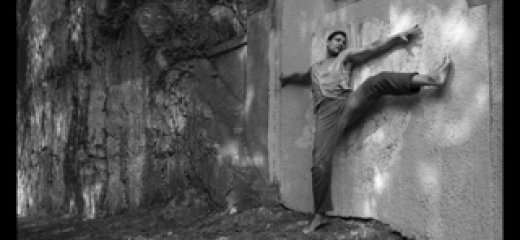
Using Our Bodies as Sites of Restful Resistance
by Darcy Grabenstein
The email invitation from the Jewish Studio Project (JSP) was too tempting to resist: “Join us for a Creative Rest session with dancer, choreographer, activist and installation artist Adam McKinney! Together we'll look at the topic of rest and creativity through the lens of somatic practice and embodied healing. We'll ask, ‘How can we use our bodies as sites of restful resistance?’”
JSP, based in California, works to cultivate creativity as a Jewish practice for spiritual connection and social transformation. Its Creative Rest program is a drop-in series designed to support and nourish the creative and spiritual capacities of those working on the frontlines of justice movements across the country. The free monthly sessions are led by JSP founder Rabbi Adina Allen and one guest educator.
McKinney is associate professor of dance at Texas Christian University in Fort Worth. He is a former member of the Alvin Ailey American Dance Theater, Béjart Ballet Lausanne, Alonzo King LINES Ballet, Cedar Lake Contemporary Ballet, and the Milwaukee Ballet Company.
In an interview after the session, McKinney talked about his professional dance experience. He said that the Alonzo King and Béjart Ballet companies only perform works by their namesake choreographers. “I was able to cue into their visions,” he said. “It made me a better artist. I was able to bring more of myself into their work, which helped define who I wanted to be as an artist.”
McKinney describes himself as a queer Jew, sitting at the intersection of several identities: “Black, Blackfoot, Cherokee, white Ashkenazi Jew.” When people ask him, a person of color, “How are you Jewish?” his response is “I’m fine Jewish. How are you Jewish?” I laughed out loud at this witty answer from someone who attended an Orthodox Jewish day school.
“We are identified most regularly and most often by external forces,” McKinney told me. “And so, some of my work, connected inevitably to social justice activism, exists to resist some of those forces. Forces that identify me in ways that don’t encompass the robustness, the brightness, the infiniteness of who I am and, in turn, who we all are.”
About 20 other people — including a woman I recognized from a biweekly online meditation group I’m in — participated in the JSP session. Seeing a familiar face made me more comfortable in this online space. This wasn’t my first time participating in a Creative Rest session. Last month, I eagerly joined in a three-hour Creative Rest deep dive. It was led by Mónica Gomery, rabbi and music director of the West Philly-based Kol Tzedek (“Pursuit of Justice”) synagogue, whose members are committed to economic and racial justice.
McKinney started with a seated breathing and stretching exercise. Although he gave us verbal cues and I wanted to keep my eyes closed for a fuller experience, I kept peeking at my laptop screen so I could mimic his movements. We stretched our arms skyward, backward, syncing movements with our breaths. After a particularly stressful day, I found this was just what the doctor ordered. The theme of his session was “Rescripting the Script.” He noted that trauma theorists say that in order to heal, one must return to sites of trauma and replace memories with new ones.
In that vein, McKinney shared a video excerpt of his dance “HaMapah/The Map” (“hamapah” is Hebrew for “the map”), which traces his mixed heritages. The work is a production of DNAWORKS, a Fort Worth arts and service organization committed to healing through the arts and dialogue of which he is co-director. The scene shows him on land once owned by his grandparents, sharecroppers in Arkansas. As he moves with purpose and passion, his clothes are drenched with sweat and his grunts are audible. I feel as if he’s embodying their physicality, their frustration. McKinney affirmed this, telling me that it was both emotionally and physically cathartic, as he danced barefoot on gravel, leaving his feet dusty and bloody. I cringed as he pivoted, his bare soles digging into the gravel, his expression pleading, his arms outstretched as if reaching for freedom. Based on his ongoing social justice work, I think McKinney is still reaching for it.
McKinney told me that his husband, Daniel Banks, directed the dance film and noticed that the choreography was very linear from a spatial perspective. “When we got to the land … I thought about the manner in which cotton is planted in rows, so the linearity of the choreography perhaps unknown to me in the moment, very much related to the agricultural linearity of that particular space.”
DNAWORKS also runs the Fort Worth Lynching Tour, honoring the memory of Fred Rouse, the victim of a racial terror lynching there in 1921. McKinney said that because the goal of the tour is not to re-traumatize but to re-source participants, the sites where Mr. Rouse was attacked are visited in reverse order. In this way, he said, the tour offers a rescripting of events. In a re-envisioned ending/beginning, Mr. Rouse walks home to his family.
McKinney told me he couldn’t help but make the parallel between Aaron Dean — the Fort Worth police officer recently convicted of manslaughter in the shooting death of Atatiana Jefferson — and the police force members and citizens who killed Fred Rouse. “I think about how far we’ve come and how far we haven’t come,” he said, referring to police brutality against Blacks and the systemic racism that persists today.
At the end of the session, we were given a creative prompt: What in our own lives needs rescripting? Participants were encouraged to use the artistic medium of their choice such as dance, writing, or art. I rewrote a poem about a racist incident I had witnessed growing up in the South. Our neighbors would not allow their Black maid to stand on their lawn to wait for the bus. In my rewrite, I changed my actual passive-aggressive response to one that more directly addressed the situation. And now, still dissatisfied with my reaction, I want to rewrite it yet again with an even more forceful approach by confronting my neighbors directly. This exercise is helping me deal with my guilt by inaction decades after the incident.
He closed out the session by offering participants a blessing that began: “We should always remember that we are alive. We should always remember that we are not alone.” I know from this online community that I am not alone, and I can’t wait for the next Creative Rest session.
Creative Rest with Adam McKinney, Jewish Studio Project, Dec. 15, 2022
By Darcy Grabenstein
December 21, 2022

